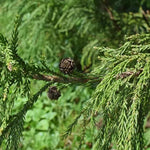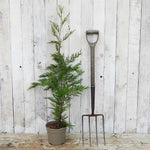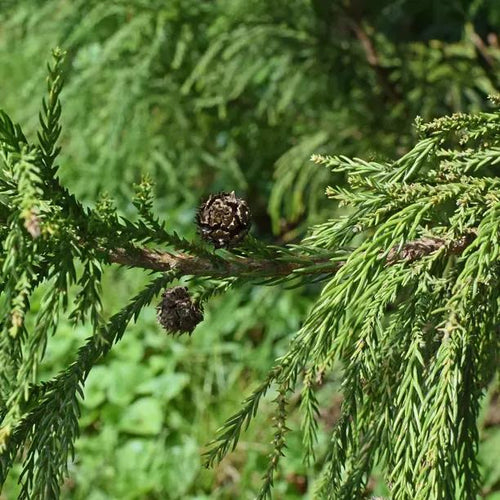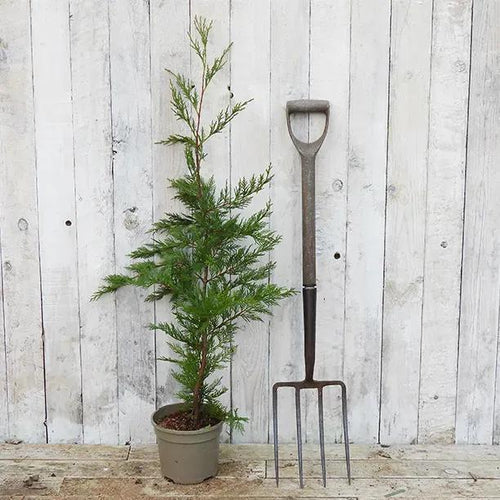 Delivered across the UK
Delivered across the UK Which Best Plant Supplier 2025
Which Best Plant Supplier 2025 1 Year Bareroot Plant Guarantee
1 Year Bareroot Plant Guarantee
About Leyland Cypress Hedge Plants
Leyland Cypress Hedge Plants
× Cuprocyparis leylandii is the world's most vigorous coniferous tree.
To achieve privacy for a garden or large scale operation within a couple of years, plant a Leylandii Cypress hedge!
Its shaggy fronds of bright evergreen foliage have a softness not found amongst most conifers.
Left to become a mature tree, Leylandii will reach 40m in forty years and has an elegant, columnar shape that tapers towards the top. However, it's mainly grown as a hedge or screen.
Features
- Height: up to 40m
- Spread: 2 m
- Colour: bright, matt green
- Spacing: 60-150cm
- Foliage: soft evergreen fronds
- Fastest-growing formal hedge - requires regular trimming
You cannot fail to have a wonderful hedge quickly using Leylandii cypress that will cut out ugly views and light disturbance from roads or neighbours. It makes an effective break from prevailing winds allowing you to plant more tender plants in your protected garden and will screen ugly buildings. It's also a quick solution to creating different 'rooms' in your garden so you can have areas of contrasting atmosphere and planting.
Browse other formal hedge plants, evergreen hedge plants, or all hedging.
Growing Leylandii
It'll thrive in almost any soil, immune to pollution, sturdy in and sea winds.
The spacing is dictated by your desired height. For an easily maintained 3-4m tall hedge, plant them close together at 60cm apart. Plant them further apart if you are growing them tall to screen out a large building.
You must clip hedge twice a year to keep it under control. If you can do this, you will keep your Leylandii at a manageable and practical height that won't involve the added expense of special equipment or tree surgeons. If you let the regime slip, it's almost impossible to regain the shape you wanted, and the taller it gets, the harder it's to clip.
If you need an evergreen hedge that is easier to control, consider using Yew instead.
Leylandii is delivered pot-grown all the year round and is best planted in early to mid-spring.
They're pest and disease free; stressed trees can develop bacterial cankers when they're cut back too hard or dry out in summer.
History & Trivia
Leylandii was created accidentally: the two American species of Cypress (Chamaecyparis nootkatensis and Cupressus macrocarpa) cross-fertilised in Wales, and the consequent hybrid was recorded in 1888 by CJ Leyland. The resulting tree was propagated by clones. By 1911, when more were discovered, it was clearly a special tree, with high-quality structural timber, attractive commercially.
The Law of the Leylandii
Leylandii can grow a metre a year - almost unheard of for conifers, except the giant redwoods. This phenomenal growth engendered a new law: The High Hedges Act, drawn up to give people legal recourse against neighbours who let their Leylandii get out of hand.
The law applies to any evergreen hedge over two metres, but it became necessary when Leylandii became popular!
Older sources may list is as Callitropsis × leylandii.













 Secure, One-Tap Checkout
Secure, One-Tap Checkout
 Hand Picked, Delivered to Your Door!
Hand Picked, Delivered to Your Door! 1 Year Bareroot Guarantee
1 Year Bareroot Guarantee





